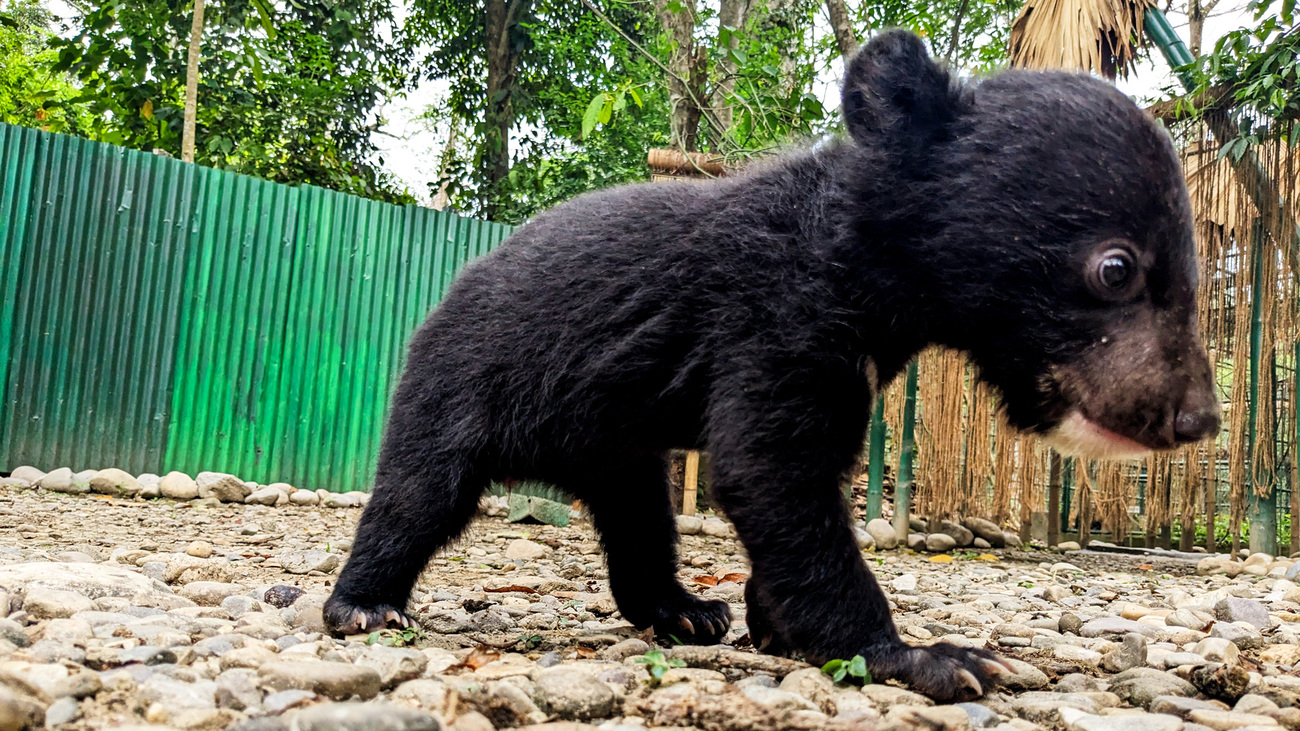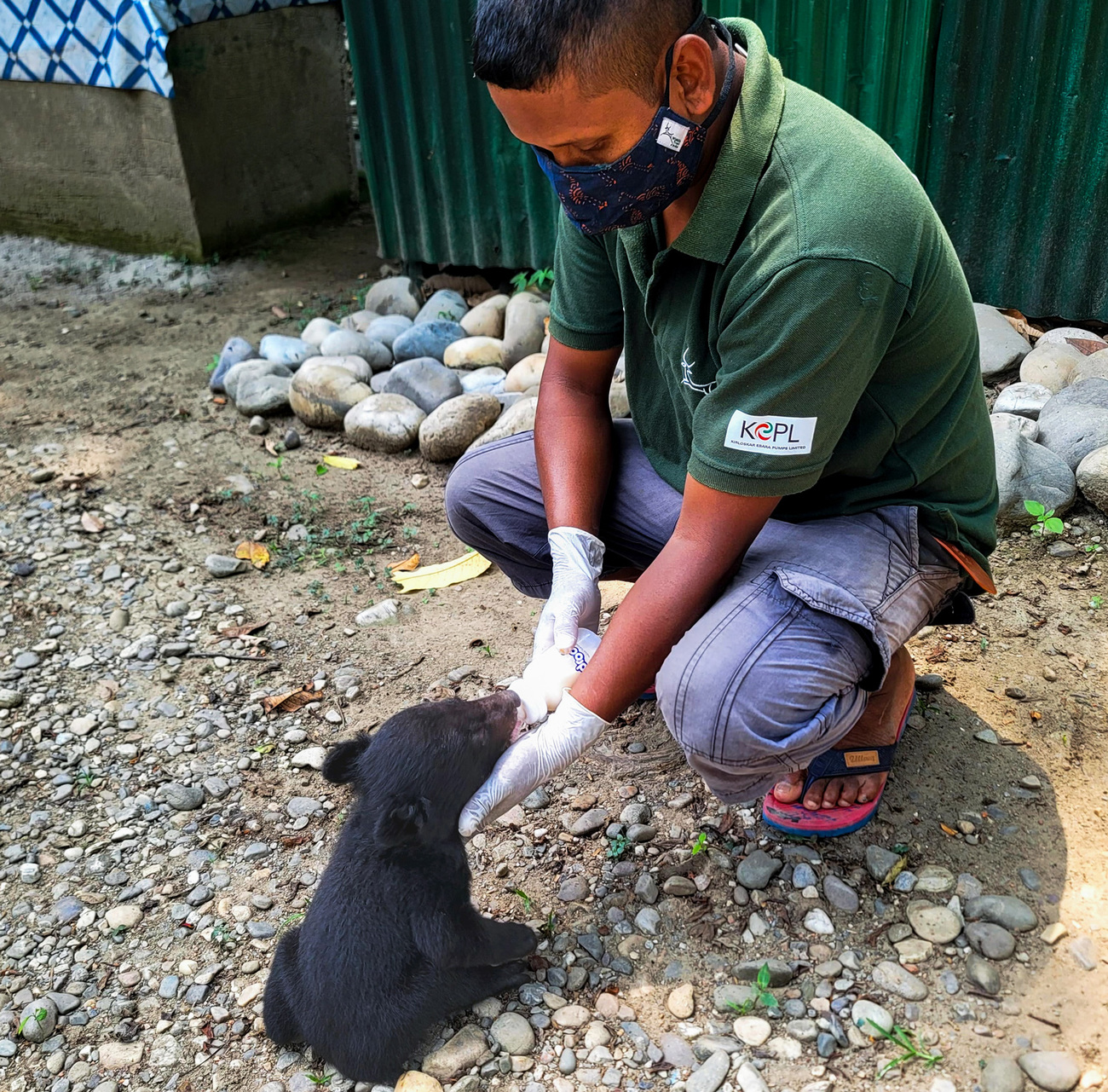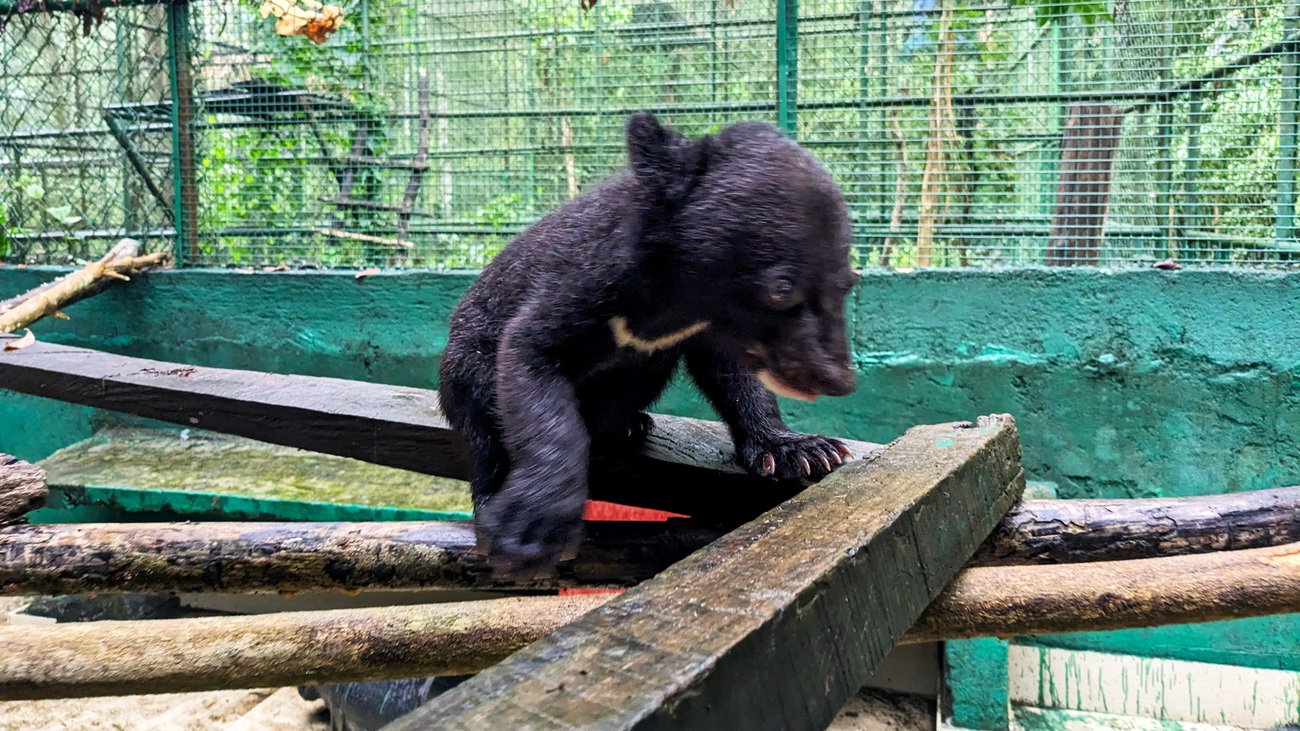Centre for Bear Rehabilitation and Conservation - India
A cub that loses its mother shouldn’t have to lose its homeRaising Papum, an orphaned black bear cub
Raising Papum, an orphaned black bear cub
Meet the tiny bear cub orphan who is the newest resident of IFAW’s bear sanctuary—Papum.
Papum is an Asiatic black bear cub, also known as a moon bear. Sadly, we believe he lost his mother due to poaching, leaving Papum to live without her care and guidance—a tragic and common consequence of wildlife crime.

In the wild, Asiatic black bear cubs are typically weaned at four months, but they often stay with their mothers for about two years. Found in the Sagalee region of Papum Pare district by the Arunachal Pradesh Department of Environment, Forest & Climate Change, Papum was only one month old when he was rescued, so he needs round-the-clock specialized care.
Luckily, the IFAW–Wildlife Trust of India (WTI) Centre for Bear Rehabilitation and Conservation (CBRC) is here to help. Across northeastern India, poaching of black bears is unfortunately a common occurrence. The cubs of poached mother bears often die alone, while others are captured for zoos or the exotic pet trade. As a result of these and other threats, Asiatic black bears are classed by the IUCN as a vulnerable species. The goal of CBRC is to rehabilitate these orphaned cubs and prepare them for a successful release back into the wild.
Handed over by Dr. Sorang Tadap, veterinarian at Itanagar Zoological Park, to the CBRC on 24 April 2024, Papum stayed in quarantine for 21 days. Upon arrival, he was seriously dehydrated—but with careful nursing and a specially formulated milk, fed to him six times a day, Papum started gaining weight and strength.

The IFAW–WTI CBRC was established in 2003, with support from the Arunachal Forest Department and the Government of India Ministry of Environment and Forests. Raising bear cubs by hand involves taking them on daily walks in the wilderness, teaching them the skills they need to survive on their own, and reintegrating them into their natural habitats. Papum receives enrichment like old bark and branches, which help him develop vital skills like climbing and balancing.
Papum received his own foster parent, one of our keepers at CBRC, and is growing even more under his care. He is gaining an average of 50 to 70 grams every day, now weighing around 5 kilograms. His recent behaviour is encouraging—he has increasingly been walking, exploring rocks and insects, and climbing. These are all positive signs for a successful future release.

Since the centre was founded, 85 bears have been cared for at CBRC. Papum’s success story, alongside the others, highlights the tireless efforts of forest officials, WTI, and all the other individuals dedicated to protecting wildlife. Rescuing and rehabilitating a single cub like Papum is not only a reflection of IFAW’s belief that every individual animal matters, but it is also a marked step towards conserving an entire threatened species. This tiny bear, now growing big and strong, serves as a symbol of hope.
With continued care and enrichment provided by CBRC, Papum has a good chance of returning to his true home in the wild in the coming months.
Related content
every problem has a solution, every solution needs support.
The problems we face are urgent, complicated, and resistant to change. Real solutions demand creativity, hard work, and involvement from people like you.